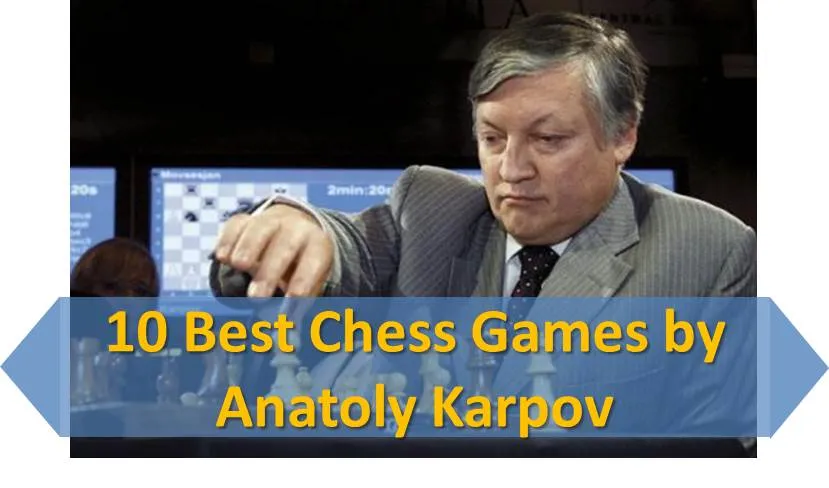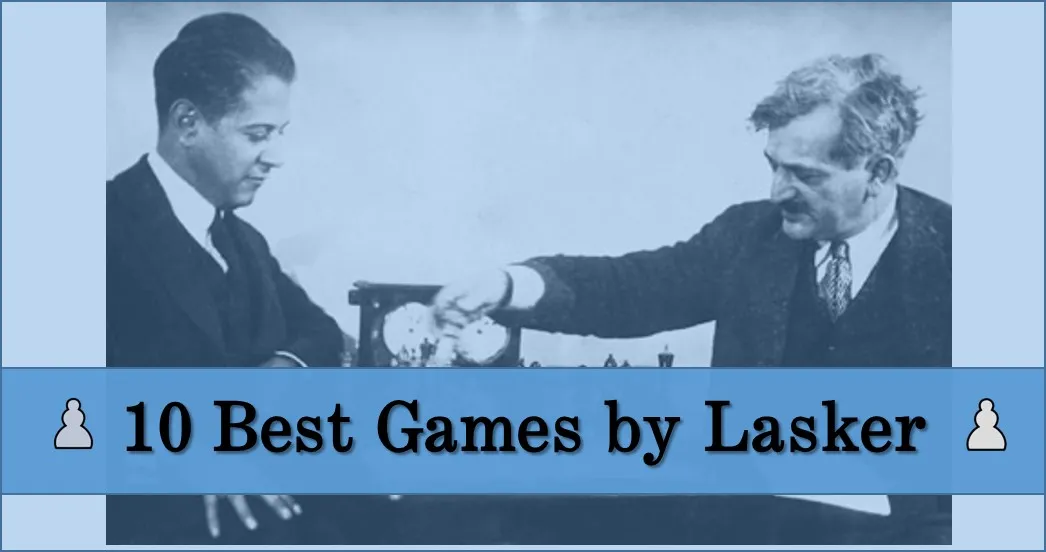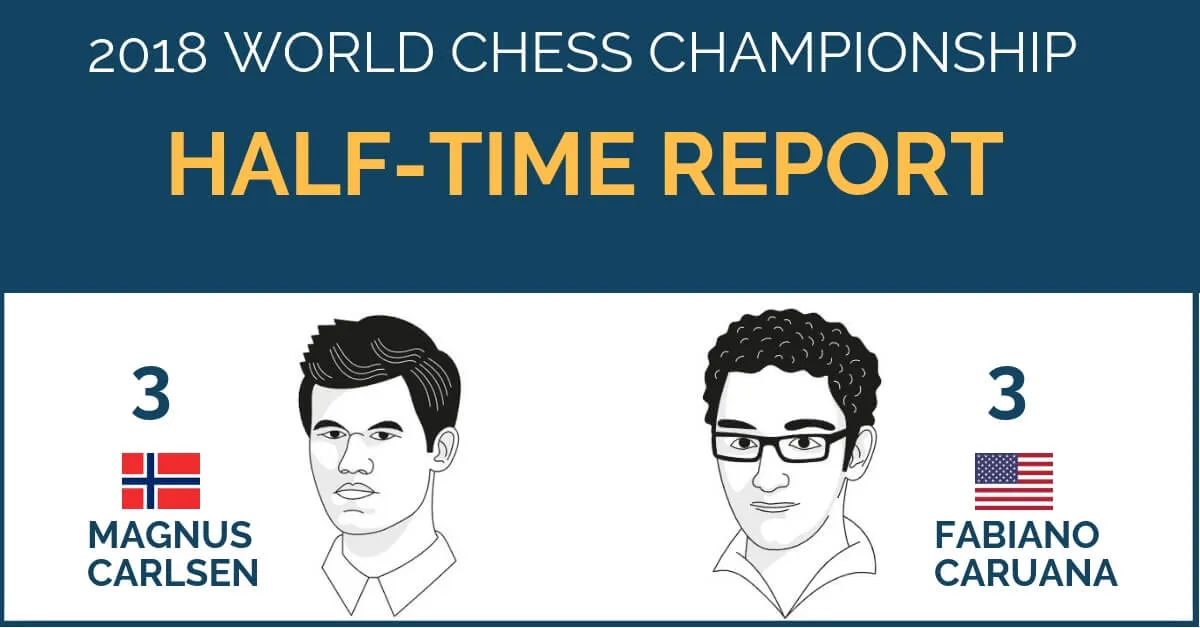Top 10 Chess Habits to Drop Today
Habit is an unconditional behavior that is repeated regularly. A good habit can make your game, while a bad one can simply break it. That’s why it is very important to keep close watch on your habits, and make sure you reinforce good ones and get rid of the bad ones as quickly as possible. In today’s article we will analyze top 10 habits that every chess player should drop.
1. Don’t compare yourself to others
All chess players are different. Openings that work for one player, will not necessarily do a good job for another one. The same goes for chess training. Some players naturally are able to improve faster than the others.
Some players will take a little longer to get stronger. That’s totally normal. This concept is similar to the traditional weight training. Some athletes tend to grow muscles much easier and faster than others. That does not mean, however, that if you are in the “hard to get stronger” category you won’t be able to improve. You will. You just need a bit more patience, and if you keep working on it, you can achieve anything.
That’s why it’s not a good idea to compare your chess with other players’. What matters is where you were 6 months ago, and where you stand now. If you got stronger, see positive results, that means you succeeded. If not, appropriate changes should be made.
2. Don’t be afraid to take risk
Most chess players are afraid to take risk. That’s mostly because they don’t want to deal with negativity of the losses. What they don’t understand, is it’s next to impossible to get better if you are always playing safe with no stress or challenges. By sacrificing pieces and struggling to survive over the board you are pushing your chess ability further and that’s what will make you a better player.
3. Don’t focus on your past games
Many chess players get fixated on their previous wins and losses instead of focusing on the future games. That’s not a good position to be in. The best approach is to forget all of your previous successes and failures and to treat the new game as a fresh start, a new beginning.
Don’t blame yourself for that loss in round 2 and don’t get too excited about that neat tactics you’ve found a round earlier. Those things don’t matter right now and won’t help you at winning current game. Focus on what’s important.
4. Don’t repeat your own mistakes
Do you know why some chess players spend 20-30 years on playing chess and don’t improve by much? You guessed it right. They repeat their own mistakes over and over again, a year after year, a decade after decade.
If you don’t want to be in their shoes, just don’t repeat your own mistakes. That’s indeed easier said than done, but if you analyze your games, identify your mistake patterns, you will have no problem doing just that!
5. Don’t complain about your losses
What do amateur players do after they lose the game? They complain about the consequences that prevented them from winning the games. What do professional players do? They take the blame, analyze the game, find what exactly went wrong and make appropriate corrections to their future games.
It’s a pretty simple and straightforward algorithm which starts with admitting that you have done something wrong. Once that is out of the way, the necessary steps should be taken to fix the real issues. If you instead choose to complain about the loss, you will take responsibility off your shoulders but that won’t help you a bit at becoming a better chess player.
6. Don’t say “I can’t”
Many chess players simply choose to say “I can’t” instead of getting up and keep pushing forward. They claim that they have tried everything, from books to personal coaches but failed to improve.
In 99% of the cases that means these players simply don’t know what and how to study. They briefly go over some of the game examples in the book without stopping and thinking about the moves. They definitely can improve; they just need to make changes in their training routines.
7. Don’t neglect training
Many chess players simply play chess. They don’t analyze their wins and losses, don’t study GM’s games, don’t solve tactics, don’t spend time on studying middlegames and endings.
Nevertheless, they expect to get better at chess. They will improve somewhat, but that improvement will be very limited. They won’t see fast and rapid improvement because of lack of the precise training plan with goals, training exercises, homework, etc.
If you want to improve your game, a good training program is gold.
8. Don’t be afraid to ask for advice
Asking for advice from a stronger player is not a sign of weakness but rather a sign of strength. Despite that being true, many chess players hesitate when it comes to asking for advice about their game. Getting a good advice can make all the difference in your game. Keep that in mind next time you want to ask for advice!
9. Don’t try to play perfect chess
If you want to win the game you don’t need to play absolutely the best moves. All you need is to play the moves better than your opponent’s. Stop trying to find the best moves in all positions. That’s how you get in time trouble. Playing good moves is enough, unless you’re playing against Houdini Chess Engine or Kasparov himself.
10. Don’t hesitate to invest time and money in chess
If you want to become a better chess player, it is generally well worth investing time and money into a good chess training program as well as some good supplementary materials. If you feel like you need an individual coaching you may consider getting a private coach, who will guide you through the process. In most cases unless you are already 2200, private coach is not a must and you can work on chess on your own.
However, you shouldn’t think that simply watching some YouTube videos, and reading some articles here and there will bring your chess to some seriously new level. It doesn’t work like that for most players. What 95% of players need to improve is the systematic training, where they are being guided through the whole process.
That’s why we recommend our complete training package to supercharge your chess.










Comments: